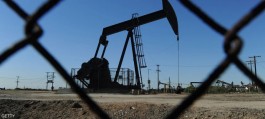NEW YORK (Reuters) - Oil markets rose 2 percent on Friday as the dollar softened but Brent crude remained on track to its biggest weekly loss in four months from profit-taking in recent sessions.
A wildfire that has shrunk Canadian oil sands crude production by a third and reports of a militant attack on a Chevron (N:CVX) platform in Nigeria's oil-rich Niger Delta region also supported prices, analysts said.
The global surplus still exists and there is still a possibility that oil prices could retrace further, Dominick Chirichella, senior partner at the Energy Management Institute, said.
However, the market is trading more and more in sync with the forward-looking or perception view, with the current bearish fundamentals mostly priced into the market.
Brent crude futures (LCOc1) were up $1 at $46.01 a barrel by 11:44 a.m. EDT (1544 GMT).
U.S. crude's West Texas Intermediate (WTI) futures (CLc1) rose 93 cents to $45.25.
For the week, Brent was on course to a 4.5 percent loss, its biggest weekly loss since January, while WTI headed for a 1.5 percent decline. The drop came after profit-taking by investors early in the week on April's gain of 20 percent or more in the two crude benchmarks.
The dollar, which has a huge impact on greenback-denominated commodities such as oil, slipped after the U.S. economy added the fewest number of jobs in seven months in April, raising doubts on whether the Federal Reserve will raise interest rates before the end of the year. [FRX/]
At least 720,000 barrels per day (bpd) of Canada's crude production capacity remained offline as the wildfires ravaged the oil town of Fort McMurray in Alberta and forced evacuation of workers and precautionary production cuts or shutdowns at about a dozen major facilities.
While most of the oilsands are to the north of the city, CNOOC Nexen's Long Lake facility and Athabasca Oil's (TO:ATH) Hangingstone project are south of Fort McMurray and were in danger, according to emergency officials. Both facilities have been evacuated.
In Nigeria, the attack on Chevron's platform in the Niger Delta was carried out by the same group that behind a February raid on a Shell (L:RDSa) pipeline that caused the shut down of the 250,000 bpd Forcados export terminal.
Drops in oil output are happening so fast that it looks as if the Americas alone could resolve global oversupply.
Unplanned oil supply disruptions have been a key element so far this year that have contributed to a tighter oil market than was otherwise expected, said analyst Guy Baber of Simmons & Co.






































